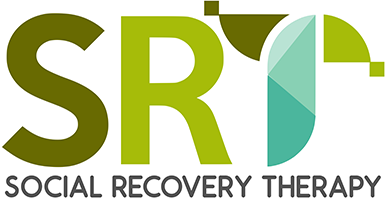Social Recovery Therapy in improving activity and social outcomes in early psychosis: Current evidence and longer term outcomes
David Fowler, Joanne Hodgekins, and Paul French
Abstract
Background
Social Recovery Therapy (SRT) is a cognitive behavioural therapy which targets young people with early psychosis who have complex problems associated with severe social disability. This paper provides a narrative overview of current evidence for SRT and reports new data on a 2 year follow-up of participants recruited into the Improving Social Recovery in Early Psychosis (ISREP) trial.
Method
In the ISREP study 50 participants (86%) were followed up at 2 years, 15 months post treatment. The primary outcome was engagement in paid work, assessed using the Time Use Survey. Engagement in education and voluntary work were also assessed. In addition, the Positive and Negative Syndrome Scales (PANSS) and the Beck Hopelessness Scale (BHS) were administered.
Results
25% of individuals with non-affective psychosis in the treatment group had engaged in paid work at some point in the year following the end of therapy, compared with none of the control group. Data from the PANSS and BHS suggested no worsening of symptoms and an indication that gains in hope were maintained over the 15 month period following the end of therapy.
Conclusion
Social Recovery Therapy is a promising psychological intervention which may improve social recovery in individuals with early psychosis. The new data reported in this paper shows evidence of gains in engagement in paid employment outcomes that persisted 15 months beyond the period of active intervention.
